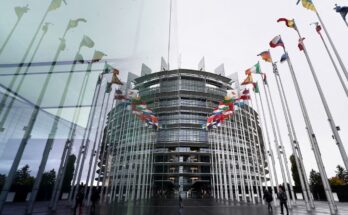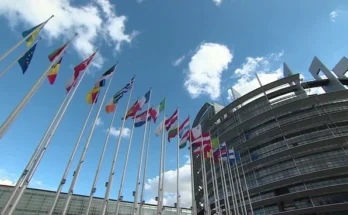The EU wants to end sooner than expected the tariff exemption that packages under 150 euros that enter the EU now benefit from. The Union’s finance ministers, the so-called Ecofin, not only agreed this Monday to end this exception, but also to do so earlier than expected. The initial proposal put forward by the European Commission in the customs reform, aimed at protecting European businesses from this competition, was to eliminate it in 2028. And this was approved this Thursday. Ecofin has also committed to collaborating with the European Executive to try to bring forward the application of this measure by two years: to 2026.
Although the initiative is not officially intended for goods coming from a specific place, there is one piece of data that clarifies what the main objective is: 91% of all e-commerce shipments with a value of less than 150 euros came from China in 2022. In fact, there are several companies of this nationality that stand out in this type of purchases: Temu, Alibaba or Shein. France itself ordered the suspension of this company’s activity after the scandal relating to the sale of sex dolls resembling girls on its site.
The initiative to bring forward this exemption came from the European Commission itself, whose head of Trade, Maros Sefcovic, sent a letter to states asking them to agree to eliminate the tariff exemption next year. Finance ministers were not as specific in their pact, but pledged to find a way to make it happen “as soon as possible” over the next year. Indeed, the Danish minister, Stephanie Losse, interim president of Ecofin this semester, has indicated that they hope to receive a concrete proposal from the Executive in December to create some type of mechanism that will speed up the entry into force of the measure.
The time that member states have given themselves until 2028 is linked to the complexity of adapting customs so that they can take on all the additional work needed to end the current exemption. “The new rule will start to apply once the EU customs data center, the central platform proposed by the EU for interacting with customs and strengthening controls, is operational, which is currently planned for 2028,” reads the statement released after the meeting.
But now the decision has been made to move forward due to “unfair competition”, said Losse, originally from Asia, especially China. The objective is to defend the interests of European industry. Sefcovic also used this argument: “(The agreement) sends a clear signal that Europe takes fair competition and the defense of its companies’ interests seriously.”
With this agreement, Council sources underline, the EU seeks to guarantee that all goods entering the EU and having to pay tariffs do so starting from the first euro and thus avoid legal loopholes that facilitate the entry of products without paying customs duties. “Following current regulations, estimates indicate that up to 65% of small parcels entering the EU are undervalued to avoid customs duties on imports. (…) The threshold has also raised environmental concerns, given the incentive for non-EU companies to split shipments into individual parcels when sending goods into the Union,” the Council justifies.



